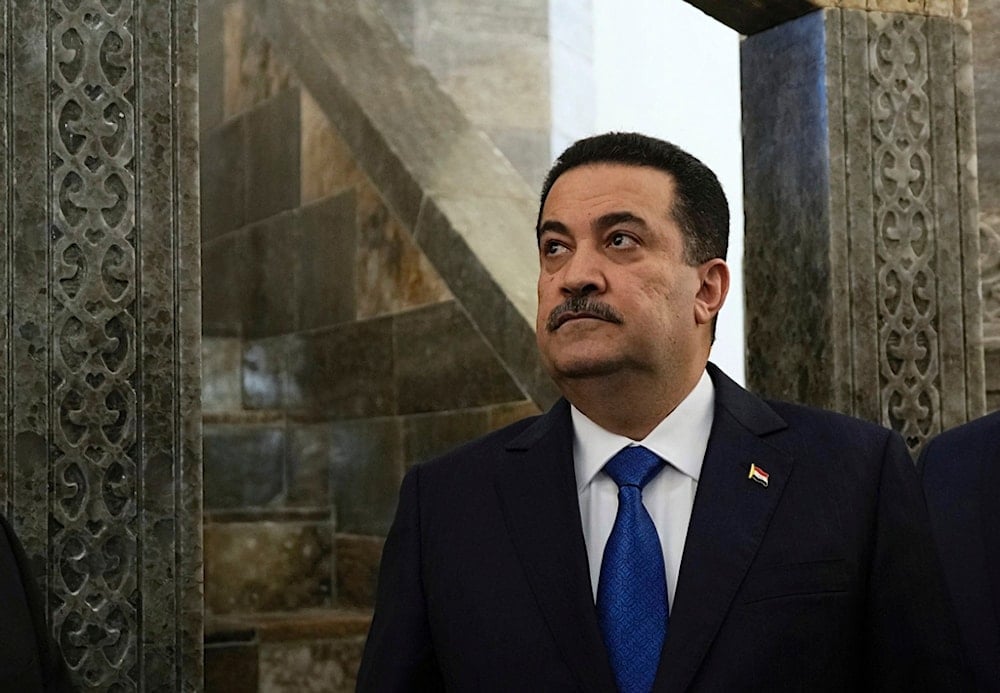Iraq's Al Sudani urges Islamic defense alliance after Doha strike
Iraqi Prime Minister Mohammed Shia Al Sudani urged Islamic nations to establish a joint defense structure after "Israel's" strike in Qatar, while the US sought to distance itself from the attack.
-

Iraqi Prime Minister Mohammed Shia al-Sudani attends the reopening of the historic Al-Nuri Grand Mosque and its leaning minaret in Mosul's Old City, Iraq, Monday, Sept. 1, 2025 (AP Photo/Hadi Mizban)
Iraq's Prime Minister Mohammed Shia Al Sudani suggested on Sunday that Islamic nations should establish a joint defensive framework to counter Israeli aggressions in the region.
"There is nothing that prevents the Islamic states from creating an alliance in the form of a joint security structure for defense," Al Sudani told reporters, noting that Arab and Islamic countries possess the necessary resources to push back against Israeli aggression. He warned that such strikes "will not be confined to Qatar."
Strike from the Red Sea
His remarks followed the Israeli strike on Doha that sought to assassinate senior Hamas negotiators. According to the Wall Street Journal, the attack was carried out using long-range missiles launched from the Red Sea, which crossed Saudi airspace before striking the Qatari capital. The report said eight F-15s and four F-35s were deployed in the mission.
The paper added that Washington was notified only minutes before the operation and without full details of the intended target, leaving the US military unable to act in time. A senior Pentagon official described the episode as "absolutely unbelievable."
Read more: Hayya leads funeral prayer for his son, other martyrs of Doha strike
Alliance talks
The incident drew widespread criticism as it marked the first Israeli operation inside the territory of a key US ally. US President Donald Trump later sought to distance Washington from the attack, insisting that it had been the sole decision of Israeli Prime Minister Benjamin Netanyahu. He assured Qatari leaders that "such an attack would not happen again."
Meanwhile, US Secretary of State Marco Rubio arrived in "Israel" shortly after the assault to reaffirm Washington’s support for Tel Aviv. His visit drew further scrutiny from Gulf commentators, who said the inability, or unwillingness, of the US to restrain Israeli actions undermined confidence in American security guarantees, even as Qatar deepens its diplomatic and economic ties with Washington.
Qatar’s prime minister announced last week that consultations were underway for an Arab-Islamic summit to develop a collective response to the assault, a move that dovetails with Al Sudani’s call for a broader regional security alliance.

 2 Min Read
2 Min Read








